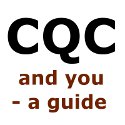 Charlotte Thornton-Smith of Harrison Clark Rickerbys Solicitors offers this guide 'Care Quality Commission: A Brief Guide to Enforcement'.
Charlotte Thornton-Smith of Harrison Clark Rickerbys Solicitors offers this guide 'Care Quality Commission: A Brief Guide to Enforcement'.
Overseeing and monitoring the safety and effectiveness of hospitals, care homes, dental and GP surgeries and other care services across England, the Care Quality Commission (CQC) sets the legal standards the industry must follow. Solicitor, Charlotte Thornton-Smith, who specialises in acting for clients in the health and social care sector, clarifies what happens if you or your service fails to meet these standards – and how you can challenge its decisions.
The Care Quality Commission (CQC) is the independent regulator of health and social care services in England. It operates under the Health and Social Care Act 2008 (the 'Act') and regulations made under the Act (the 'Regulations'). Its role is to register providers and managers which meet the legal requirements to offer health and social care services ('Registered Persons'), to regulate and investigate the provision of such services and to take enforcement action.
When a Registered Person fails to comply with its legal requirements, the CQC has a series of responses which it can follow depending on the circumstances of the case. This guide briefly summarises the enforcement options open to the CQC as well as the opportunities available for Registered Persons to challenge the CQC's decisions.
1. Compliance Actions
Where the non-compliance is a 'first offence' and it has a minimal or moderate impact (i.e. there is no immediate risk of harm to service users), the CQC will usually commence what are called 'Compliance Actions'. The CQC will require the Registered Person to prepare a report within a specified timescale stating what action will be taken to achieve compliance. If the report is acceptable, no further action will usually be taken. If the report is not acceptable, the CQC will engage in discussions and may carry out a site visit, and is likely to issue a Warning Notice (see below).
2. Warning Notice
The Warning Notice is the first formal stage of enforcement open to the CQC. It will be issued where Compliance Actions have been unsatisfactory or where there are multiple cases of non-compliance or breaches with major impacts on service users.
A Warning Notice tells a Registered Person that they are not complying with their legal obligations. It will state a reasonable timescale for achieving compliance. The Registered Person must notify the CQC when compliance has been achieved, following which the CQC will carry out further checks. If the CQC is not satisfied that there has been compliance, it will consider other enforcement options (see below).
If a Registered Person objects to the content of a Warning Notice (for example, because it is factually incorrect) representations may be made to the CQC within 10 working days of service of the notice. The CQC is entitled to publish Warning Notices (including through press releases) after the period for making representations has passed.
3.Civil Enforcement
Where there has been non-compliance with Compliance Actions or Warning Notices, or where there are multiple or major breaches, the CQC may take Civil Enforcement action.
Civil Enforcement is designed to protect service users from harm by improving the care they receive or preventing unsafe care being provided. It involves varying, imposing conditions upon, suspending or in the most serious cases cancelling the registration of a Registered Person. This could have a significant effect on the viability of the business.
Except in urgent cases, Civil Enforcement begins with the CQC serving a Notice of Proposal on a Registered Person informing them that they intend to make changes to their registration. The Registered Person is entitled to make written representations to the CQC concerning the Notice of Proposal within 28 calendar days of service of the Notice. The CQC will consider the representations and will either withdraw the Notice of Proposal or serve a Notice of Decision, confirming its decision to change the registration. In urgent situations (e.g. where life is at risk), the CQC will issue a Notice of Decision immediately. Notices of Decisions are published by the CQC and shared with service users, Local Authorities and other health authorities.
If a Registered Person wishes to appeal a Notice of Decision, they must submit an appeal to the independent First-Tier Tribunal Service within 28 days of receiving the Notice of Decision. The Tribunal will hear the appeal at a Hearing, and may either dismiss the appeal and uphold the CQC's decision or uphold the appeal. If an appeal is upheld, the Tribunal can make a decision about the registration. The First-Tier tribunal decision may be appealed through the Tribunal Service and the Court of Appeal.
4. Criminal Enforcement
In many cases breaches of the Act, the Regulations and conditions of registration can give rise to criminal as well as civil liability. Depending on the circumstances, the CQC may opt to undertake Criminal Enforcement steps as an alternative to or in parallel with Civil Enforcement. The purpose of Criminal Enforcement is to hold a Registered Person to account for causing harm or failing to meet legal requirements. Criminal Enforcement can lead to prosecution and ultimately the imposition of fines against Registered Persons of up to £50,000 in the most serious cases.
5. Penalty Notices
Where there has been a failure to comply with a Warning Notice (see above), multiple offences or offences with a major impact, obstruction of the CQQ in the course of an inspection or the carrying out by unregistered persons of regulated services, the CQC may serve a Penalty Notice. A Penalty Notice requires payment of fixed penalties ranging from £300 (for failing to provide documents, information or explanation of a relevant matter) up to £4,000 for providers and £2,000 for managers (for failure to comply with Regulations, conditions or registration of carrying on a regulated activity when registration is suspended).
Payment of a Penalty Notice will dispose of criminal liability (without any admission of guilt) and avoid prosecution. If the Registered Person fails to pay the penalty, the CQC will usually proceed to prosecution.
6. Simple Caution
A Caution is a way of marking minor criminal behaviour without the need to take the offender to Court. The CQC may offer a Caution where there is clear evidence of an offence which meets the standard for criminal prosecution and the Registered Person admits the offence and is prepared to accept the caution. Accepting a Caution may be a way of avoiding the cost risks of prosecution, but it should not be forgotten that it is an admission that a criminal offence has been committed and will form part of the Criminal Record of the Registered Person. This can have a knock on effect in issues as diverse as employment, study, international travel and insurance.
7. Prosecution
The CQC has the power to prosecute Registered Persons through the Criminal Court for breaches of the Act, the Regulations and the conditions of registration. Prosecution is the most serious Criminal Enforcement option open to the CQC. For all but the most significant offences, it will be a last resort (although it may be used in conjunction with Civil Enforcement action described above).
The CQC will only prosecute where it is satisfied that a prosecution is in the public interest and there is a realistic prospect of conviction. It will consult with other regulators and co-ordinate any prosecutions as necessary.
If a prosecution is successful, the Court will make a decision on the imposition of fines. These can range from £2,500 for offences such as failure to provide documents, information or explanations, obstructing entry and inspection or making false statements, to up to £50,000 for failure to comply with Regulations relating to quality and safety or conditions of registration, or providing services without being registered. Separate fines can be imposed for each successful conviction.
In summary
The CQC has a wide range of compliance and enforcement options. In many cases, tight deadlines are imposed to object to decisions. Service providers should have systems in place to monitor compliance with the Act, the Regulations and any conditions of registration. Any compliance and enforcement action taken by the CQC should be dealt with as a matter of urgency. The consequences for failure to act swiftly in instances of non-compliance could have a devastating effect not only on the business of service providers but also on individual Registered Persons.
Always seek legal advice at an early stage.
Ref: HCR Health 14 06
Date: 10th April 2014
Contact: Michelle Whitefoot (T:01886 812779) or Kabbie Langford (T:07940 371794)
Charlotte Thornton-Smith is a Partner and Head of the Health and Social Care Team at Harrison Clark Rickerbys solicitors – T: 01905 744811, email: This email address is being protected from spambots. You need JavaScript enabled to view it.
This guide and its contents are offered by HCR solicitors and not by Interconnections. Interconnections accepts no responsibility for the information and advice in the guide.
 The only way to become a first-generation Sibshop facilitator is to attend a two-day Sibshop training. Adult sibs, parents, service providers, university students and others often join us for just the first day for a lively and rewarding discussion of sibs' issues across the lifespan. We hope you can join us!
The only way to become a first-generation Sibshop facilitator is to attend a two-day Sibshop training. Adult sibs, parents, service providers, university students and others often join us for just the first day for a lively and rewarding discussion of sibs' issues across the lifespan. We hope you can join us! 

 Charlotte Thornton-Smith of Harrison Clark Rickerbys Solicitors offers this guide 'Care Quality Commission: A Brief Guide to Enforcement'.
Charlotte Thornton-Smith of Harrison Clark Rickerbys Solicitors offers this guide 'Care Quality Commission: A Brief Guide to Enforcement'. I have a request to link together people in Cameroon who have an interest in autism. Do you live in Cameroon or have links with the country? Do you have autism? Do you work to support adults or children with autism? Do you have an academic interest in autism?
I have a request to link together people in Cameroon who have an interest in autism. Do you live in Cameroon or have links with the country? Do you have autism? Do you work to support adults or children with autism? Do you have an academic interest in autism? News from ILO: Annisa Matandike, 30, used to think she had limited options in life and that discrimination would marginalize her because she lives with albinism. But she is now well on her way to realizing her lifelong dream of setting up her own catering business.
News from ILO: Annisa Matandike, 30, used to think she had limited options in life and that discrimination would marginalize her because she lives with albinism. But she is now well on her way to realizing her lifelong dream of setting up her own catering business.